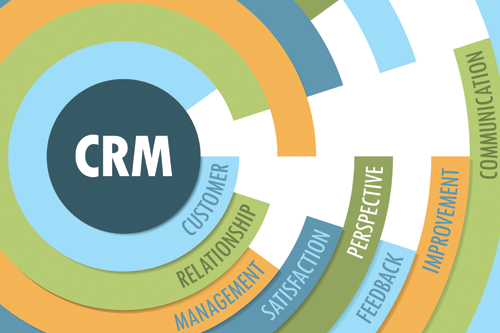
By: Tanya Hyatt
We can all agree that customers are important to your business. Developing, nurturing, and managing customer relationships are essential to an organization’s success, reputation, and ultimately, their bottom line. And the best way to do that is to use a CRM.
If the acronym CRM is new to you, or you’re familiar with it but not sure where to start, then you’ve landed on the right page. This post will introduce you to what a CRM is and show you how to go about searching for the one that best fits your business needs.

What Is a CRM?
CRM stands for customer relationship management. Most of the time when someone refers to their CRM, though, they’re talking about the software (or system) they use. And just as the word implies, a CRM system has a lot of interconnected tools. When leveraged together, these tools can drastically boost productivity, improve relationships with customers, vendors, and others; and increase a business’s bottom line. According to Salesforce.com, “3 out of 4 consumers say they spent more money with a company because of a positive customer experience.” Essentially, a CRM is a system to keep your contacts and communication nicely organized, which translates to great customer service because it helps you avoid redundant, impersonalized, or impertinent communication—in both sales and marketing.
Who Is a CRM for?
Anyone who has customers or clients can (and probably should) use a CRM to collect and organize contact information from customers, clients, and vendors. CRMs provide tools companies can use to improve customer satisfaction, personalization, organization of communication, ultimately leading to more efficient and purposeful business strategies. But this is just the tippy-top of the iceberg of what a CRM can do, so let’s explore that next.
Why Do I Need a CRM?
Would it surprise you if I told you that some companies are still using spreadsheets to manage their customers? It’s actually not uncommon at all—especially for smaller organizations. For a small number of contacts, an Excel or Google spreadsheet may work fine … for the moment. The problem is that, no matter how many pivot table masters are on your team, spreadsheets can only do so much. If and when you’re ready to expand your customer base—and increase sales and marketing efforts—there will come a point where sanity tops expense.
There are a lot of CRM systems out there to help:
How Do I Choose a CRM?
This is the million-dollar question, and one that does not have a clear-cut answer. CRMs are not a one-size fits all solution, and that’s why there are so many to choose from. Instead, they are dependent upon two things:
I say “near future” because you can always switch CRMs, although it’s not an easy feat nor one to do often, especially if you have a large organization with a lot of users to onboard to a new system. Change management can be a beast of an undertaking! But businesses evolve and grow—and models change too! Maybe you started out as a service solopreneur and now you’re a national behemoth. Change is inevitable.
Your Non-Negotiables
If you’re just starting to explore what a CRM can do for you, you might not fully know what your non-negotiables are. That’s why consulting pros like PRP (yes, a shameless pitch!) can help you determine key elements to keep in mind that you might not have thought about yet. That being said, you can get yourself started in a few steps:
Questions to Keep in Mind
Now that you know the most pressing issues you want to solve, it’s time to start looking and evaluating CRMs. While I’m not going into different solutions at this point, here are some general topics and thoughts to keep in mind to get the ball rolling.
Size
Sales and Lead Management
Reporting
Marketing
Security
Ease-of-Use
Flexibility
Integrations
Training / Onboarding
One Last Tip
Get other team members involved!
Ask for input from sales reps and leaders, marketers, automation managers, and digital media specialists. Anyone who will have access and will be required to use the CRM can provide you with valuable insights into what they are experiencing. This will also let you know whether or not the features and functions of the CRM you are evaluating will meet the broader needs of the different departments and, ultimately, your company.
Thanks for sharing!
PRP Group, a Hawke Media Company, is an award-winning full-service education PR and marketing firm serving the pre-K–12 and higher-ed community.